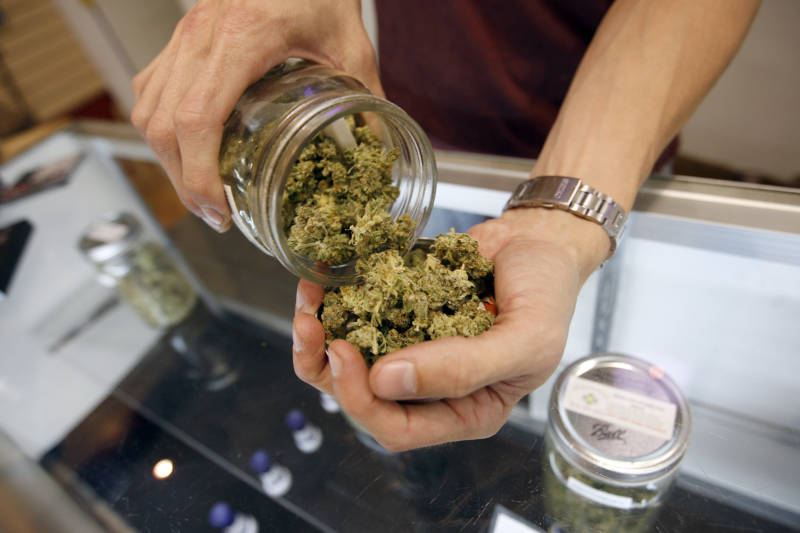Most Americans live in states where marijuana is legally available in some form, including California, which legalized recreational marijuana in 2016 and is the nation’s largest legal pot market.
But most banks don’t want anything to do with money from the cannabis industry, for fear it could expose them to legal trouble from the federal government.
That conflict has left many growers and sellers in the burgeoning pot industry in a legal dilemma, shutting them out of everyday financial services like opening a bank account or obtaining a credit card. It also has forced many businesses to operate only in cash — sometimes vast amounts — making them ripe targets for crime.
Banking, government and industry representatives at the House hearing urged lawmakers to pass a proposal that would allow pot businesses to access loans, lines of credit and other banking services, while sheltering financial institutions from prosecution for handling pot money.
“In California, we have been trying to pass many pieces of legislation to either work around, go around or patch this issue of banking access, and we have come to the conclusion that we really need Congress to act,” Ma said. “Having a safe harbor for banks is probably the most expeditious way of getting more folks out of the black and gray markets and into the legitimate markets.”
California lawmakers rejected a proposal last year that would have created a state-backed bank for the marijuana industry, and a recent report commissioned by Ma’s predecessor, John Chiang, found that such a bank would require more than $1 billion in capital investment and fail to be profitable for 25 to 30 years.
Ma called federal action a crucial step for the rapidly expanding industry. She cited another report that projects consumer spending on legal cannabis in the U.S. will reach $23 billion by 2022, including more than $5 billion in California alone.
“It’s critical we accommodate the magnitude of this economic uptick with access to banking for this new state-regulated industry,” Ma told lawmakers.
She also noted other ancillary impacts of not having banking access for cannabis businesses, including people not reporting domestic violence for fear of police coming into their homes or businesses. She said people who don’t report their income from cannabis businesses may not be liable for child support or be eligible for full Social Security benefits.
“So there’s a lot of social impacts that are also affecting the communities by not having access to banking,” Ma said.
Gregory S. Deckard, who spoke on behalf of the Independent Community Bankers of America, said the cloud of legal uncertainty was inhibiting access to banks while creating safety hazards for businesses. The proposal, he said, “would offer the needed clarity” for more financial institutions to welcome the marijuana industry as customers.
But others had concerns.
Republican Rep. Blaine Luetkemeyer of Missouri said the proposal would create confusion while marijuana remains illegal at the federal level. He questioned how banks would identify criminal operators and pointed to how Congress handled hemp, the low-THC cousin of the cannabis plant, which was removed from the list of federally controlled substances.
With the banking legislation, “we are putting the cart before the horse,” he said.
Legalization advocates have reason to celebrate that the hearing simply took place, when the proposal — and other similar versions — have languished in the past.
“Lawmakers are not being asked to weigh in on whether marijuana should be legal or not. They are simply looking at whether banking services should be available to these businesses in states where it is already legal,” said Mason Tvert of the Marijuana Policy Project, an advocacy group.
The number of banks and credit unions willing to handle pot money is growing, but they still represent only a tiny fraction of the industry.
The hearing comes days after Oregon Sen. Ron Wyden proposed legislation that would give states a free hand to allow legal cannabis markets without the threat of federal criminal intervention. The proposal would take marijuana off the federal controlled substances list and remove federal criminal penalties for individuals and businesses acting in compliance with state marijuana laws. An identical proposal is pending in the House.
Reporting from Nina Thorsen of KQED and Michael R. Blood of the Associated Press was used in this post.

